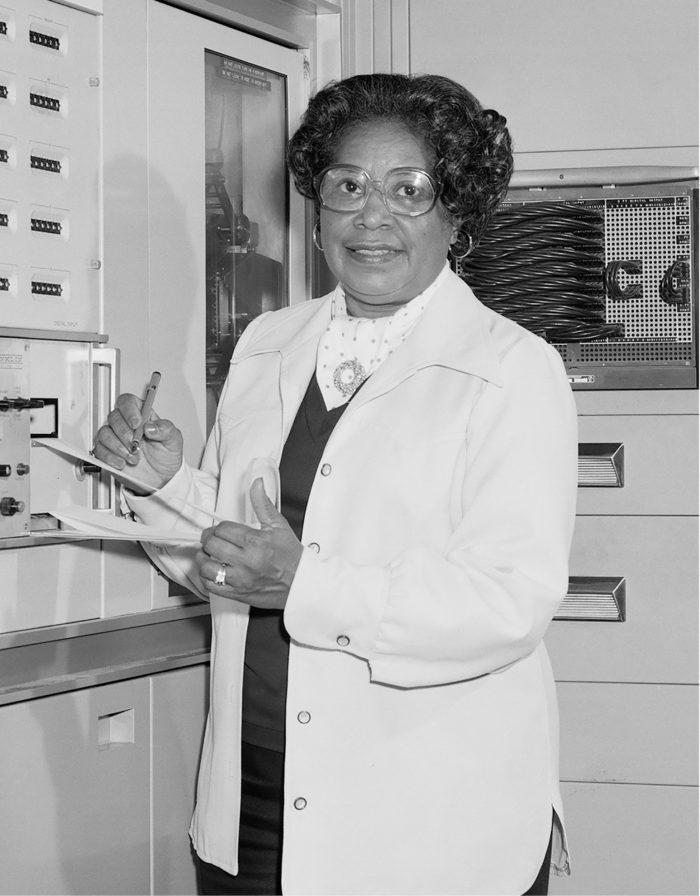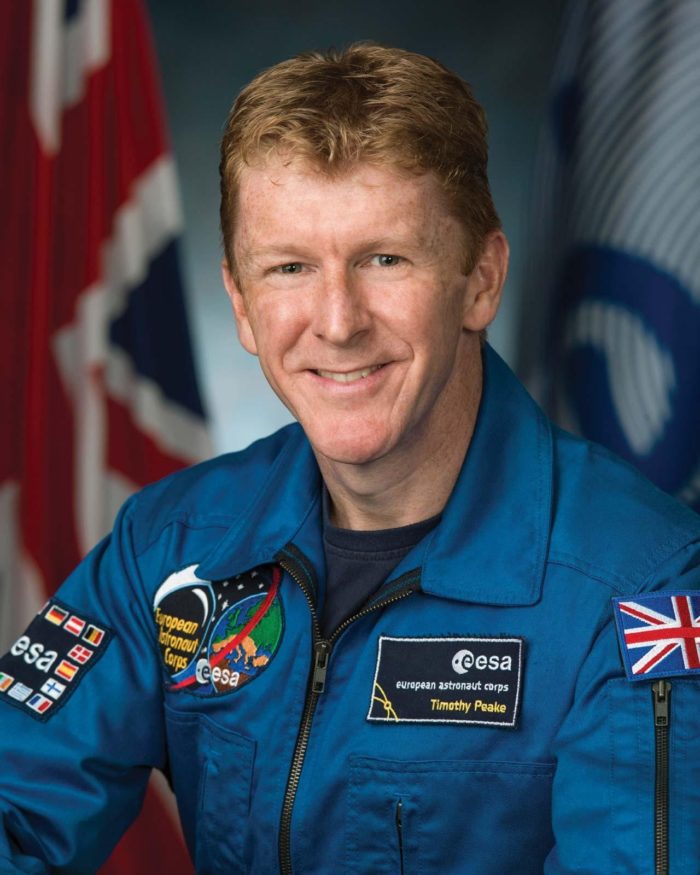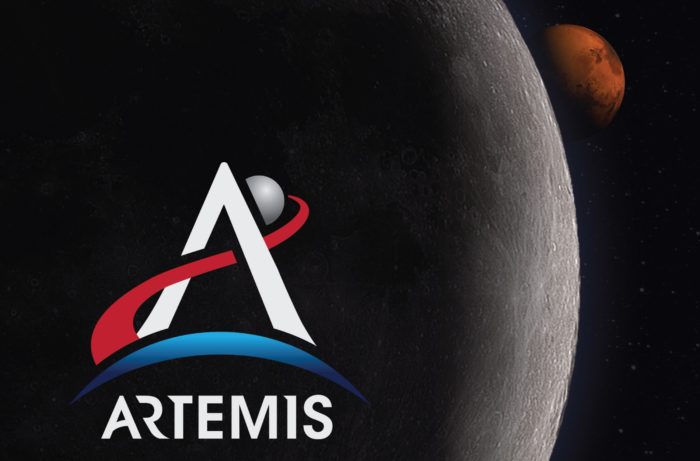Welcome to Lets Talk Space, your monthly guide to the 5 most exciting news articles (in our opinion) within space and space tech. This month’s episode we discuss NASA’s headquarters name change, Tim Peake, the Artemis program and all things Mars.

In a groundbreaking move, NASA has made the decision to name the agency’s headquarters in Washington D.C. after Mary W. Jackson. A move that has brought forward the outstanding accomplishments of the before ‘hidden figure’ Mary W. Jackson, who was the very first African American female engineer at NASA. Mary started out as a research mathematician who became known as one of the human computers at Langley and after being promoted to work in the 4-foot by 4-foot SuperSonic Pressure Tunnel, she undertook training that allowed her to become an engineer.
NASA administrator Jim Bridenstine said “Today, we proudly announce the Mary W. Jackson NASA Headquarters building. It appropriately sits on ‘Hidden Figures Way,’ a reminder that Mary is one of many incredible and talented professionals in NASA’s history who contributed to this agency’s success. Hidden no more, we will continue to recognize the contributions of women, African Americans, and people of all backgrounds who have made NASA’s successful history of exploration possible.”
Click here to learn more about this story

British astronaut, Tim Peake has joined the advisory board of Scottish company ‘Skyrora’. Tim Peake is widely known for his accomplishments as the first British European Space Agency astronaut and the 6th person born in the UK to go on board the ISS, he also became the first man to run a marathon from space in 2016. His experiences as an ESA astronaut and background as a British Army Air Corps officer will be indispensable for Skyora’s plans to become the UK’s premier and principal company for commercial rocket launches.
Click here to learn more about this story

With not 1 but 3 missions, the Red Planet is the place to be this month. The United Arab Emirates’ (UAE) first-ever interplanetary mission was delayed twice due to bad weather but it was successfully launched on the 19th of July. Named “the Hope Mars Mission” the orbiter will reach Mars in early 2021 and will be studying the planet’s atmosphere, weather and climate.
Afterwards on the 23rd of July, China will be launching its own orbiter, lander and rover called Tianwen-1 which, although unreported, it is likely to be studying the Martian environment. This is an incredibly important mission for China, if successful they will become the third nation to land a spacecraft on Mars.
Finally the delayed launch of the perseverance rover is scheduled for the 30th of July. Landing inside Mars’ Jezero Crater on the 18th February 2021, the rover will be studying the geology of the fascinating crater which hosted a lake and a river billions of years ago and search for ancient Mars life.
The race to Mars is a coveted one, with 50% of missions sent to the red planet failing and a short window of opportunity for launching that comes only every 26 months, it will be interesting to see the developments of these missions. We can only hope the weather conditions won’t delay further the launch of these missions as the necessary alignment of Mars, the Earth and the Sun won’t happen again until 2022.
Click here to learn more about this story

In a widely polarising move the UK has purchased a stake on OneWeb. The UK- based company filed for bankruptcy in March 2020. The acquisition deal is worth $1 billion USD, for a 90% overall stake in OneWeb, split evenly between the U.K. government and Bharti Enterprise Ltd.
OneWeb’s satellites were built and designed to be a broadband internet space-based service; however, the UK government announced that they wish to use it for Positioning, Navigation and Timing (PNT) services which would replace the EU’s Galileo satellite navigation system. While this has been a widely criticised move, only time will tell if this was the right move.
Graham Turnock, Chief Executive of the UK Space Agency, said: “The government has increased ambitions for space and we are working to strengthen our national capabilities, create high-skilled jobs and drive further growth in the UK space sector. Now is the right time to look at new ways to use space to boost the UK’s prosperity, security and global influence, while benefiting people across the whole country.”
Arfan Chaudhry, Head of International Policy at UK Space Agency, told Cosmonauts: “The decision puts the UK at the heart of the latest advances in space technology and has the potential to provide millions of people, in particular those in remote, rural locations with broadband access.”
While the original consortium acquired the group earlier in July with an even split of 45% shares, a new player has entered the picture. Billionaire space entrepreneur Charlie Ergen has invested $50 million on behalf of Hughes Network Systems, an original investor of OneWeb and a global leader in ground stations and consumer boxes. Ergen had previously attempted to enter the UK satellite market back in 2018.
The new investment will dilute the the stake of the UK government and Bharti Global however, the UK will still hold a golden share that gives them veto power over changes and holds special voting rights.
While this decision has been condemned by many, due to the risk that it imposes on taxpayers’ money, only time will be able to tell whether this decision could put the UK ahead on the new space race or whether it will hinder the efforts of many British SMEs trying to enter the industry.
Click here to learn more about this story

2024 is the year we go back to the moon with the Artemis program and NASA is on a mission to develop technologies that allow a sustainable presence in the moon. They have selected 4 U.S. based small businesses to mature technologies that will allow this. The combined follow-up fund to these companies totals $17 million dollars as part of their SBIR program’s Phase II funding initiatives. These technologies, whilst developed for the Artemis program, also have applications on Earth such as improving terrain mobility in construction, agriculture and mining.
Click here to learn more about this story
Did you know…?

There is currently a Kickstarter crowdfunding campaign for a fragrance called Eau de Space. It was developed by Steve Pearce who wants to recreate the smell of space to help astronauts train ahead of their missions and avoid any possible surprises. The scent is described to be a mix of gunpowder, seared steak, raspberries and rum. With over £300,000 already raised and 26 days to go, the project is expected to go ahead. Whilst we might not yet be able to catch a ride on the next spaceX flight, we can share this experience which was before reserved for astronauts. So would you like to smell space?
Click here to learn more:
Follow us on social media for more updates, interviews and more from the Space Tech industry.
Categorised in: Space Tech, Staff Blog

